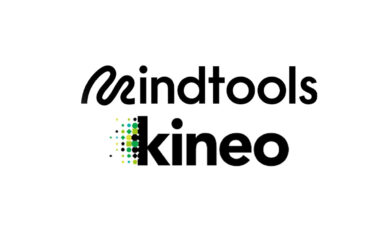 Since leaving my job as a news reporter for Thomson Reuters and going freelance some years ago, I’ve had to come to terms with failure like never before.
Since leaving my job as a news reporter for Thomson Reuters and going freelance some years ago, I’ve had to come to terms with failure like never before.
Pitching articles to magazines and newspapers can be tough. Sometimes I get a great response but, other times, my emails are met with radio silence or a brief “thanks, but no thanks.”
Similarly, writing my book has been an exercise in hitting brick walls. About a dozen publishers turned it down on my first attempt to get a deal. Rejection can be demoralizing and I found myself wanting to “throw in the towel.” But then I realized I had a choice: to give up completely or rework the book into something a publisher will want to go for.
I’ve come to understand that writing is a process of trial and error. I’ve learned a lot from the email pitches that never turned into features and all the times the publishers turned me down – and I’m confident all that learning will pay off in the future.
That’s why the message of “Fail Better,” by Anjali Sastry and Kara Penn, really hit home. Failure is inevitable but, if we can embrace it and learn from our mistakes, we’ll get progressively closer to our goals. And if we can plan our projects in a way that generates small, low-impact failures that give us valuable information we can build on, we’ll succeed faster.
It’s about testing the waters, with prototypes, mock-ups or trials. It’s about experimenting until we get it right.
In this clip from our review of this book, we hear how the design and consulting firm IDEO applied this idea.
The authors’ suggestions on experimentation or their tips on trying out a new product or service with a focus group are nothing new, of course, but I found the reminder really useful. Who’s our audience? And how can our audience help us refine what we’re offering so it hits the mark? I’ve been planning on inviting a group of female friends to my house for a long time now to brainstorm ideas for my book, which is about women and our choices around careers and motherhood. What would they want to read? What topics would they like me to cover? And I’m hoping to organize a pilot workshop for some corporate training I’m doing around strengths and self-awareness.
Feedback is invaluable – provided it’s delivered in the right way, of course, which is why the authors’ tips on how to give meaningful feedback are also helpful. Managers need strong relationships with their employees as well as an understanding of what makes each individual tick – what are their goals and aspirations? What’s important or meaningful to them about their work? I know what it’s like to work in a busy company where everyone’s struggling to stay on top of daily tasks and where there’s no time to find out about how people are feeling or where they’re heading. But I think it’s important to ask these questions – they could make the difference between people jumping ship or sticking around.
I also liked the authors’ tips on embedding learning by having a system in place to analyze what worked and what didn’t. But this part of the book also made me smile, because I know how hard it can be to put time aside to take stock of a project once it’s completed, before moving straight on to the next one, particularly in a large organization where money is tight or deadlines loom.
It’s tempting to think that making a mental note of what went wrong or jotting a few thoughts down on paper is enough to avoid repeating the same mistakes, but I agree with the authors that a thorough analysis of the past is the best way forward, both in business and in our personal life.
I know I’m guilty of holding my head in my hands, groaning as I wonder how on earth I made the same mistake again. But I do that less often these days, precisely because I take time to explore what happened and understand what went wrong, so I don’t repeat the same patterns. My own personal system of stocktaking isn’t as structured or rigorous as the authors’ model, but it’s serving me well.
“Fail Better” is a great read for anyone who wants to learn from past mistakes and use their failures as stepping stones to success. It’s particularly relevant in today’s business climate in which organizations must innovate in order to compete, because it’s almost impossible to have innovation without some failure. This book will show readers that failure is nothing to be scared of – in fact, it’s something to be embraced.
In what ways can you experiment with a new product or service so you make small, reversible errors that pave the way to success? Join in the discussion below!




